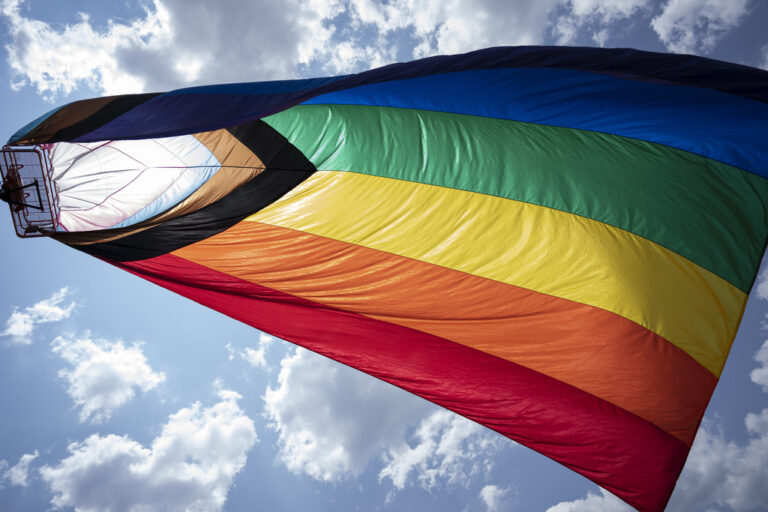
The Supreme Court is being asked to consider a slew of religious liberty cases, some of which have a shot of being taken up by the justices for the upcoming fall term.
The Becket Fund for Religious Liberty, a group that represents a diverse array of plaintiffs facing challenges to their religious beliefs, has petitioned the Supreme Court to hear several cases with far-reaching consequences.
One of the most notable of these petitions is Mahmoud v. Taylor, which involves a group of religious parents, including Muslims, Christians, and Jews, fighting for the right to be informed about and opt their children out of reading books in elementary schools that conflict with their religious beliefs. The case stems from Montgomery County, Maryland, where the school board withdrew its opt-out policy for books related to gender and sexuality, prompting the parents to sue.
The Mahmoud petition comes as school districts across the country embraced more LGBT curricula despite parental objections to these programs.
“The plaintiffs were clear that they are not trying to change the curriculum,” Mark Rienzi, CEO of the Becket Fund, said in a Sept. 4 press call about the lawsuit against the Maryland county’s curriculum.

“They’re not trying to remove books from the classroom. They’re not saying the government can’t decide to teach this stuff, but they are saying that the government does have to let parents know when it’s going to give them this kind of indoctrination on sex and gender,” Rienzi said, noting the so-called Pride Curriculum teaches students as young as 3 and 4 years old about gender ideology.
The Becket Fund filed the petition in the Mahmoud case on Sept. 12, meaning it will likely take the justices until January at the latest to decide whether to consider the case for oral arguments on the merits.
Meanwhile, two separate cases filed by the same religious freedom group have been awaiting consideration for more time and have greater odds of being selected for the upcoming fall docket, which is still standing at around half of the high court’s normal number of grants.
One case known as Catholic Charities Bureau v. Wisconsin LIRC involves an effort to restore CCB’s tax-exempt status after a Wisconsin ruling disqualified it, claiming its work was not “typical” religious activity. The other case is Young Israel of Tampa v. HART, which involves an Orthodox Jewish synagogue’s challenge to a transit authority’s ban on religious ads, which blocked their Chanukah celebration promotion.
Other important petitions the Becket Fund is supporting include:
• Landor v. Louisiana: A Rastafarian man is seeking compensation after prison officials forcibly shaved his religious dreadlocks despite the protections of the Religious Land Use and Institutionalized Persons Act.
• Apache Stronghold v. United States: Native American plaintiffs from Arizona are seeking to protect their sacred Oak Flat site from destruction by a foreign-owned mining company.
• Diocese of Albany v. Harris: Religious ministries are challenging a New York law requiring abortion coverage in health plans, arguing the requirement violates their religious beliefs.
• Moody Bible Institute v. Garrick: The Moody Bible Institute in Chicago seeks to defend its policy requiring faculty to adhere to core religious beliefs, including the prohibition of women in certain church leadership roles.
These cases reflect the national debate over the balance between religious liberty and government regulation, as the Supreme Court prepares to decide which, if any, of the religious liberty cases it will hear during its next term.
Rienzi said in the past 25 to 30 years, there has been “a dramatic uptick in the number of religious liberty cases that end up on the docket as a result of administrative action, either at the federal or the state or local level, far more than statutes.”
Justices have shown an interest in taking more religious liberty cases and have ruled in favor of religious freedom advocates in disputes surrounding a public school football coach praying at midfield and a former U.S. Postal Service worker who faced pushback from his former employer over his objections to working on Sundays.
Rienzi noted that with the recent decision to eliminate the Chevron doctrine, which will now inhibit federal agencies from creating rules without explicit justification from Congress, there may be fewer religious freedom cases that the Supreme Court feels need to be addressed in the future.
CLICK HERE TO READ MORE FROM THE WASHINGTON EXAMINER
“So I think eliminating Chevron deference at least holds the possibility that we may get fewer of those religious liberty fights caused by overreaching agency action. … We’re going to have to wait a while to see how it plays out,” Rienzi said.
The high court typically selects around 60 cases to weigh each term, according to recent trends, and more cases are set to be taken up toward the end of September when the justices reconvene after their summer recess.






